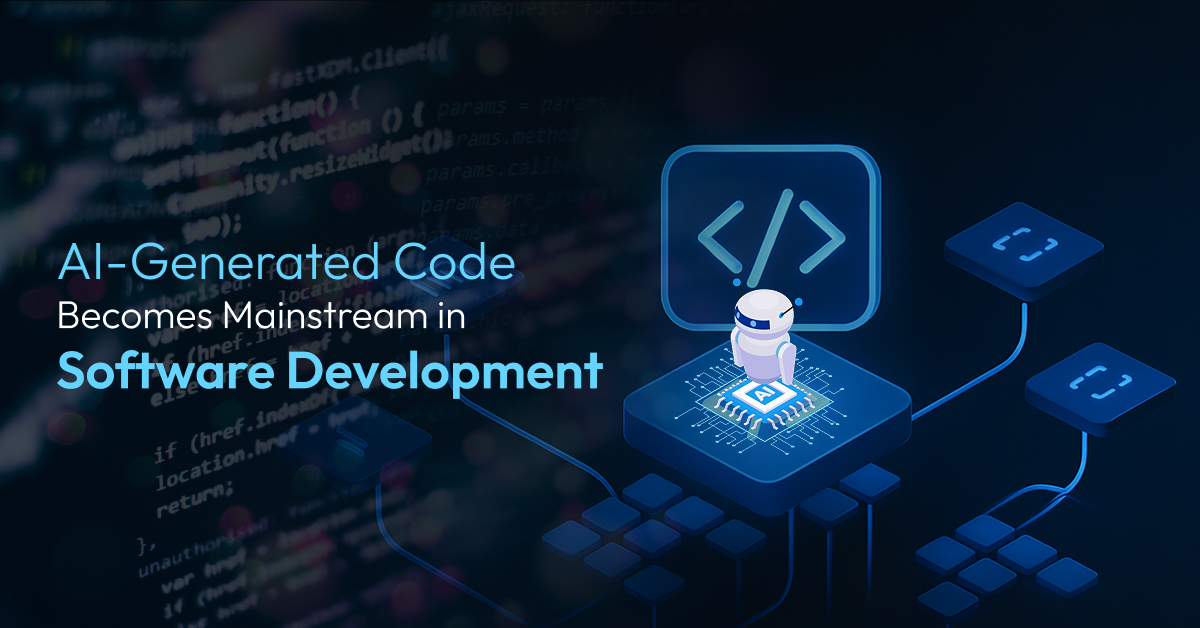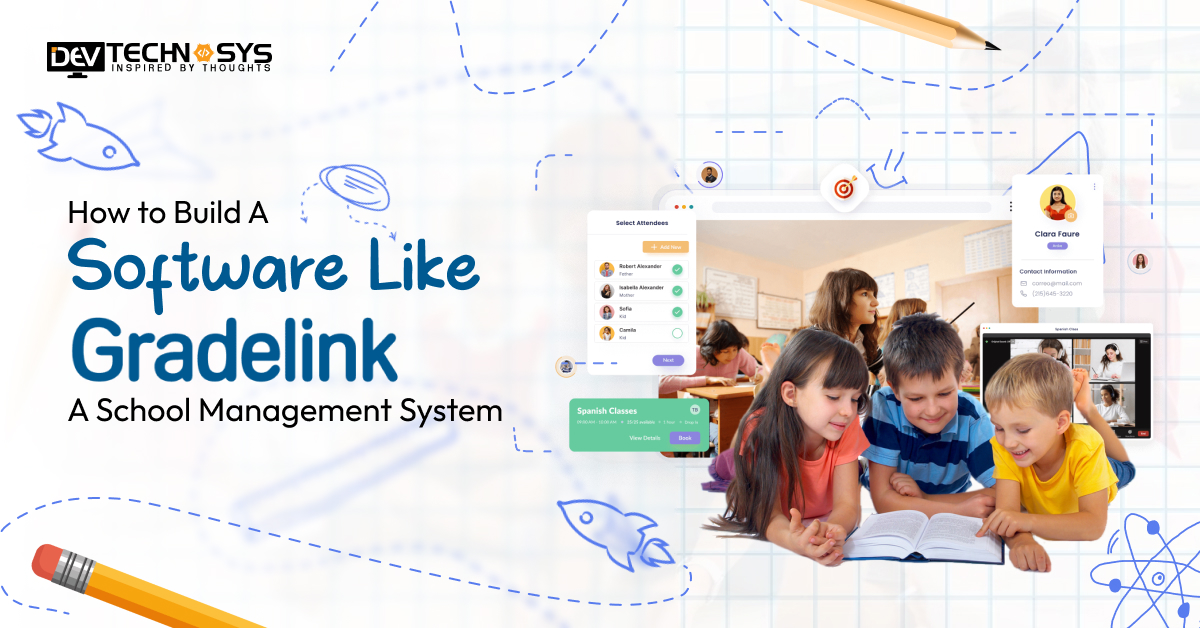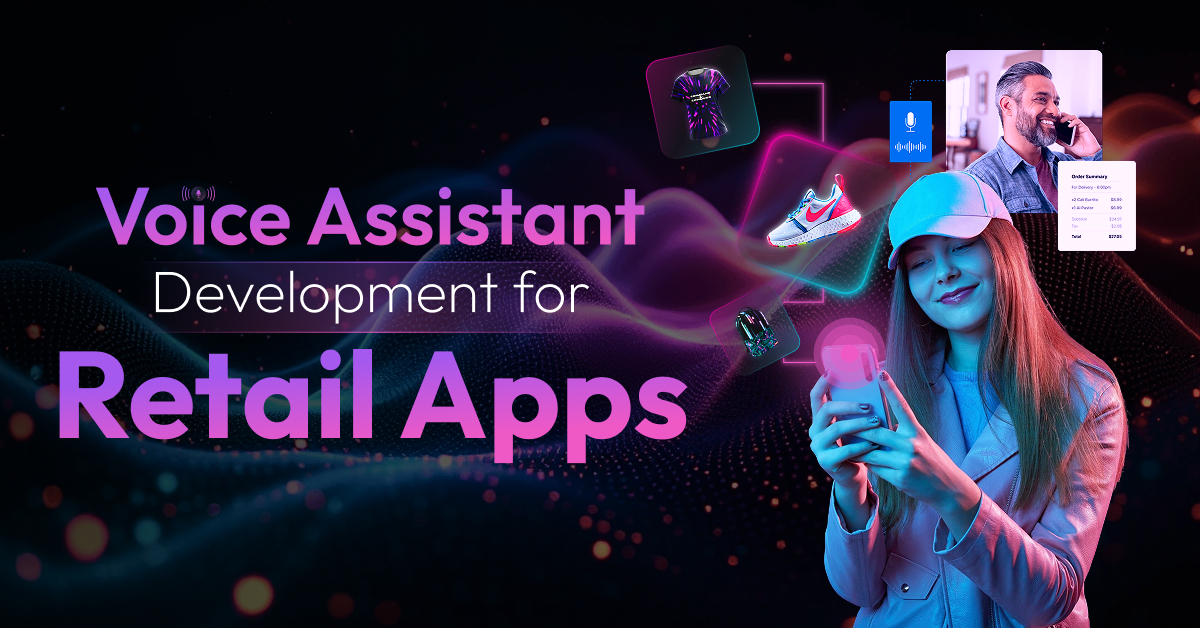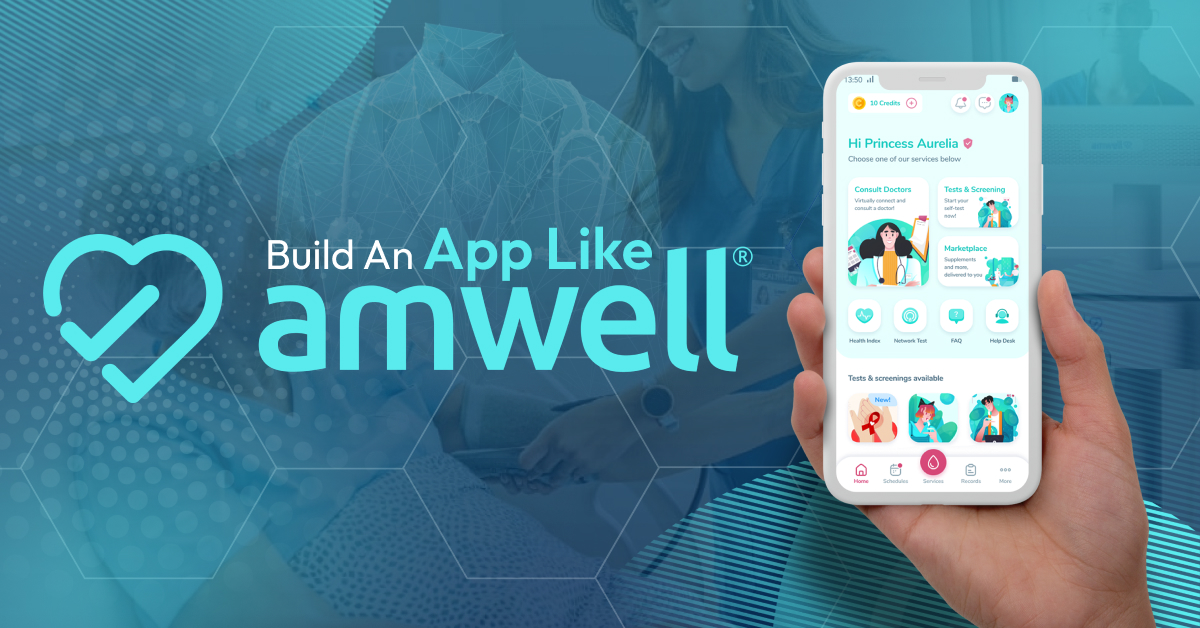What if you are manually processing software for industrial launch? It might take time and keep you far behind the competition. To resolve this issue, AI-generated code becomes mainstream in software development to automate various process. This increases the speed, efficiency, productivity, and flexibility of the developers resulting in the business growth.
Using AI in software development may assist for faster coding, testing, security, and maintenance. This includes predefined libraries that use recall functions for preemption whenever required. AI code generation is a must for modern day programs to become smart and advanced.
To understand the need for using AI-generated code in software development, let’s focus on this blog and grab some useful information.
How AI-Generated Code Becomes Mainstream in Software Development?
AI is transforming software development by increasing developer productivity and automating various activities. The entire development lifecycle is being streamlined by AI tools, from producing code to guaranteeing quality.
1. Automated Code Generation
With natural language prompts, AI coding tools such as GitHub Copilot and Tabnine can produce code fragments or even whole functionalities. This drastically cuts down on development time, particularly for boilerplate or repeating operations.
2. Debugging & Testing
By examining trends in the coding, AI can find errors and vulnerabilities early on. In order to guarantee software reliability, it also helps with the automatic generation of unit tests, regression tests, and test cases. This increases overall reliability and speeds up the QA cycle.
3. MVP Development
AI speeds up the development of Minimum Viable Products (MVPs) for teams and companies by automating backend scaffolding, user interface creation, and even workflow recommendations. Quicker customer input and market penetration are made possible by this fast prototyping.
4. Improved Code Suggestions
AI is used by intelligent code editors to offer context-aware, real-time code completions and suggestions. Compared to conventional autocomplete, these solutions provide more accurate answers because they comprehend code structure and intent. Coding sessions become quicker and more effective as a result.
5. AI-Assisted Code Reviews
Code can be examined by AI development tools for adherence to best practices, possible defects, and stylistic consistency. Before human reviewers take over, they provide an additional set of eyes. This cuts down on review time while preserving high standards of quality.
Rise & Role of AI-Powered Coding Tools
Since they automate complicated operations, increase productivity, and improve code quality, AI-powered coding tools are completely changing the software development landscape.
From code creation and debugging to documentation and deployment, these intelligent solutions support developers at every stage of the development process. The use of artificial intelligence in programming is not only speeding up development but also changing working methods in different technical ecosystems.
- Accelerate code writing through intelligent autocomplete and suggestions.
- Automate bug detection and provide real-time fixes.
- Convert natural language instructions into functional code.
- Optimize and refactor existing codebases for better performance.
- Generate and maintain up-to-date project documentation automatically.
Use Cases for AI-Based Coding Tools
The way developers write, maintain, and comprehend code is being revolutionized by AI-based coding tools. Throughout the AI-powered development lifecycle, these technologies improve code quality, expedite processes, and decrease human labor.
1. Code Autocompletion
As developers type, intelligent suggestions are provided by AI-driven code autocompletion tools. To cut down on keystrokes and mistakes, they are aware of code structure, libraries, and patterns. This increases developer productivity and speeds up coding.
2. Natural Language to Code Conversion
AI technologies can produce code based on developers’ plain English descriptions of functionality. Rapid prototyping or non-technical users will find this especially helpful. It effectively closes the gap between concept and execution.
3. Refactoring & Optimization
Artificial intelligence (AI) techniques are able to recognize obsolete, redundant, or inefficient code structures and recommend changes. Over time, they support the upkeep of readable, efficient, and clean codebases. This promotes maintainability and long-term scalability.
4. Automated Documentation
Based on the logic and structure of the code, AI may provide usage manuals, API documentation, and detailed comments. It guarantees that documentation is kept current with changes to the code. This enhances new developer onboarding and knowledge exchange.
5. Bug Detection and Fixing
Before deployment, AI tools examine code to identify probable bugs, runtime problems, and logical mistakes. Some are even able to automatically recommend or implement fixes. This guarantees a more stable codebase and aids in the early detection of issues.
Challenges and Concerns With AI-Generated Code
Speed and simplicity are two benefits of AI-generated code, but developers must also be aware of the additional risks. These difficulties may affect the overall security of the project, code dependability, and legal compliance.
1. Code Quality & Accuracy
Code produced by AI technologies may seem accurate, but it may also have logical flaws or inefficiencies. If not thoroughly examined, this may result in bugs or performance problems.
Solution: To validate AI-generated code, it is important to conduct manual code reviews and incorporate unit testing.
2. Security Vulnerabilities
AI could unintentionally overlook possible vulnerabilities or introduce unsafe coding habits. The integrity of the application may be jeopardized by these problems.
Solution: When validating AI-generated code, adhere to secure coding rules and use static security analysis tools.
3. Licensing Issues
Copyright issues could occur if certain AI technologies produce code that is taken from licensed repositories. Developers may face legal issues as a result.
Solution: Before incorporating AI tools into commercial products, confirm the code’s origin and use AI tools with explicit license guidelines.
Shifting of Power: Manual Coding to AI-Generated Code
The automated code generation is replacing manual, line-by-line coding in the software development process. In the tech sector, this change is changing jobs, competencies, and accessibility.
1. Writing to Reviewing
Instead of developing their own code, developers are now checking AI-generated code for accuracy and quality. Instead of creativity, the emphasis is now on validation.
Impact: To guarantee code dependability, developers must have robust analytical and debugging abilities.
2. Prompt Engineering
Creating precise and understandable prompts is now essential to obtaining accurate code outputs from AI systems. This combines technical intent with communicative abilities.
Impact: In AI-driven development, a new skill set known as prompt engineering is becoming increasingly important.
3. Faster Development Cycles
By automating repetitive and routine operations, AI speeds up the development, testing, and deployment stages. As a result, items have a shorter time to market.
Impact: Businesses are able to introduce features and iterate more regularly and effectively.
4. Access for Non-Coders
With the use of natural language commands, AI tools allow non-developers to create simple apps. This makes software development more accessible.
Impact: More people without extensive coding knowledge can take part in tech innovation.
5. Changing Dynamics
Managing AI workflows, evaluating output, and incorporating automation are becoming more and more aspects of the typical developer function. The model of human-AI collaboration is expanding.
Impact: In order to accommodate AI integration, software development job responsibilities are being redesigned.
Conclusion!!
In the upcoming time, more AI-based software development tools are going to be discovered that may improve service delivery and enhance user experience. Automated coding techniques are helping developers to easily build models that automatically capture user input and show results as per the requirement.
For developing software at a faster rate, you need integration of technologies like AI that can be used to code efficiently and smoothly. This enhances the resolving power of a software product and helps in engaging customers across the globe.





















